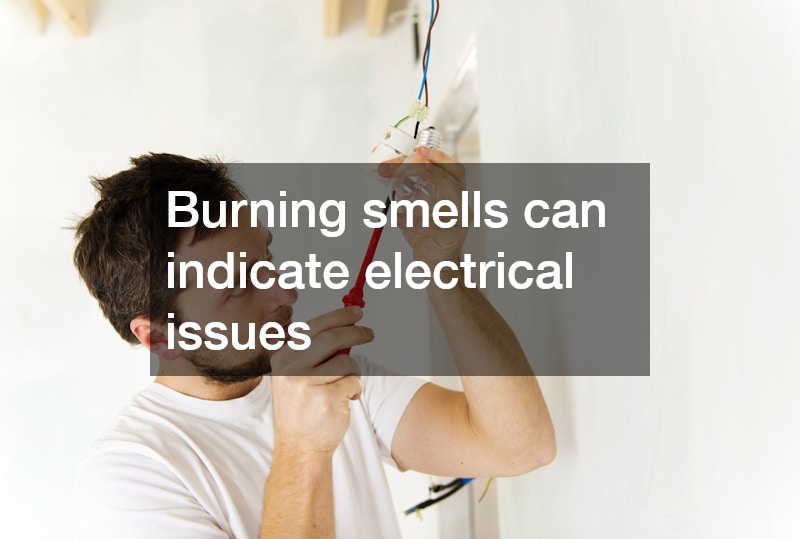Your heating, ventilation, and air conditioning system (HVAC) is one of the most important components of your home or business. It ensures comfort, regulates temperature, and maintains air quality. Like any complex system, HVAC units can develop problems over time. While routine maintenance can prevent many issues, sometimes a problem arises that requires immediate attention. Knowing when to call an emergency HVAC service can save you time, money, and stress. Here are the key signs that you should contact a professional right away.
1. Strange Noises Coming from Your HVAC System
Unusual sounds from your HVAC system, such as banging, clanging, grinding, or squealing, often indicate a serious issue. These noises can result from loose or broken components, motor problems, or issues with the fan or blower. Ignoring these sounds can lead to more severe damage and higher repair costs. If your system starts making strange noises, it’s a clear signal that you need to contact an emergency HVAC service immediately.
2. Inconsistent Temperatures or Poor Airflow
If some areas of your home or building are too hot or too cold while others remain comfortable, this may indicate a problem with your HVAC system. Uneven airflow or fluctuating temperatures can result from a failing thermostat, clogged ductwork, or a malfunctioning compressor. An emergency HVAC service can quickly diagnose and fix the problem, ensuring your system delivers consistent comfort throughout your space.
3. Foul or Unusual Odors
A burning smell, musty odor, or chemical scent coming from your HVAC system is never normal. Burning smells can indicate electrical issues or overheating components, while musty odors may point to mold or mildew growth within the system or ductwork. Chemical odors can indicate refrigerant leaks, which are hazardous to health. When you notice any unusual smell, it’s crucial to call an emergency HVAC service immediately to prevent further damage or potential safety risks.
4. Water Leaks or Excessive Moisture
HVAC systems, particularly air conditioners and heat pumps, can develop leaks or condensation problems. Water pooling around the unit or dripping from the ductwork can damage floors, walls, and ceilings. Excessive moisture can also lead to mold growth, which poses health risks. If you notice water leaks near your HVAC system, contact an emergency HVAC service to identify the source and fix it before the situation worsens.
5. System Fails to Turn On or Frequently Shuts Off
An HVAC system that won’t start or frequently shuts off is a major red flag. Electrical issues, faulty capacitors, or problems with the thermostat can prevent the system from operating correctly. When your HVAC system is unreliable, it can compromise comfort and safety, especially during extreme temperatures. Emergency HVAC service technicians can diagnose and repair the issue quickly, restoring reliable operation.
6. Increased Energy Bills
A sudden spike in your energy bills without a corresponding increase in usage may indicate that your HVAC system is struggling to operate efficiently. Problems such as clogged filters, failing compressors, or leaking refrigerant force the system to work harder, consuming more energy. Addressing the issue promptly with an emergency HVAC service can save you money and prevent further strain on the system.
7. Visible Damage to HVAC Components
If you notice visible damage to any part of your HVAC system, such as bent or broken fins on the condenser, damaged ductwork, or exposed wiring, it’s time to call an emergency HVAC service. Operating a system with damaged components can cause further harm, reduce efficiency, and create safety hazards. A professional can assess the damage and perform necessary repairs or replacements.
8. Strange or Frequent Error Codes on Digital Displays
Modern HVAC systems often have digital displays that indicate operational status. Frequent error codes or warning lights are signs that something is wrong. While some codes can indicate minor issues, repeated or unusual alerts often require immediate attention. Emergency HVAC service technicians have the tools and expertise to interpret these codes and fix the underlying problem.
Knowing when to call an emergency HVAC service is essential to maintaining comfort, safety, and efficiency in your home or business. Strange noises, inconsistent temperatures, unusual odors, water leaks, system failures, rising energy bills, visible damage, or frequent error codes are all clear indicators that your HVAC system needs professional attention. Prompt intervention by a qualified emergency HVAC service can prevent more extensive damage, save money on repairs, and ensure that your heating and cooling systems continue to function reliably. Don’t wait until a minor problem becomes a major emergency—recognizing the signs early and acting quickly is the best way to protect your investment and maintain a comfortable environment year-round.




